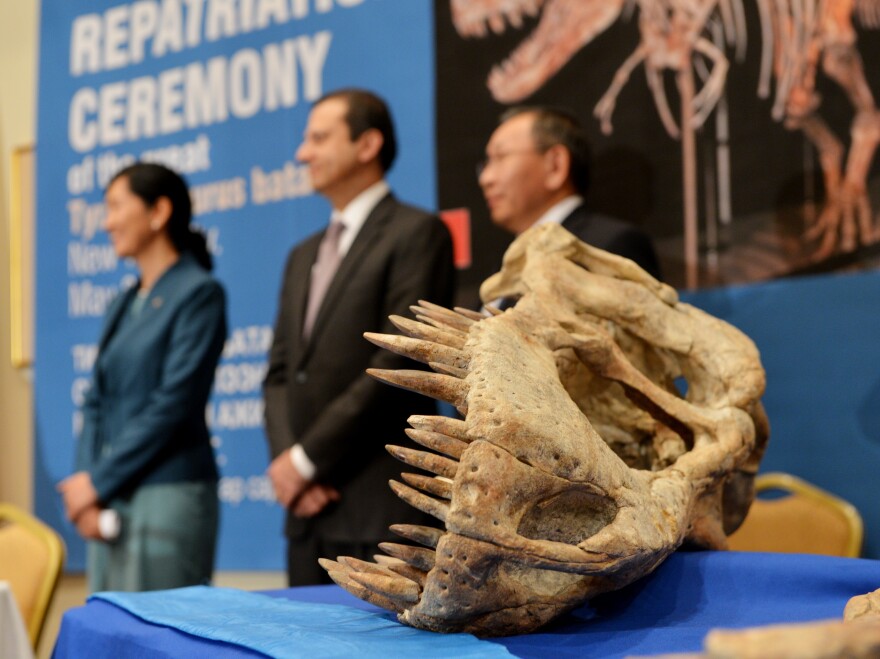A 70 million-year-old Tyrannosaurus skeleton that was looted from Mongolia and smuggled into the U.S. is on its way home after nearly being sold at auction in New York last year.
NPR's Margot Adler reports that the skeleton was seized by Immigrations and Customs Enforcement after a Florida fossils dealer pleaded guilty to smuggling charges in December and agreed to surrender the dinosaur bones.
The nearly complete Tyrannosaurus bataar skeleton, measuring 8 feet high by 24 feet long, was handed over to the Mongolian government in a special ceremony on Monday.
The bones were smuggled into the U.S. by Eric Prokopi, who according to Forbes assembled them and then tried to sell the skeleton through the Dallas-based Heritage Auctions in a May 20, 2012, sale in New York. The sale was later canceled.
"Prokopi was arrested Oct. 12. ... Shortly after his arrest, he pled guilty to engaging in a scheme to illegally import the fossilized remains of numerous dinosaurs that had been taken out of their native countries illegally and smuggled into the United States."
ICE Director John T. Morton told The New York Times that he would "hesitate to identify any particular return as the most unusual" but that the Tyrannosaurus skeleton was "clearly one of the most exceptional, if not the most exceptional, we've ever returned."
Copyright 2020 NPR. To see more, visit https://www.npr.org. 9(MDAxNDQ2NDAxMDEyNzU2NzM2ODA3ZGI1ZA001))




